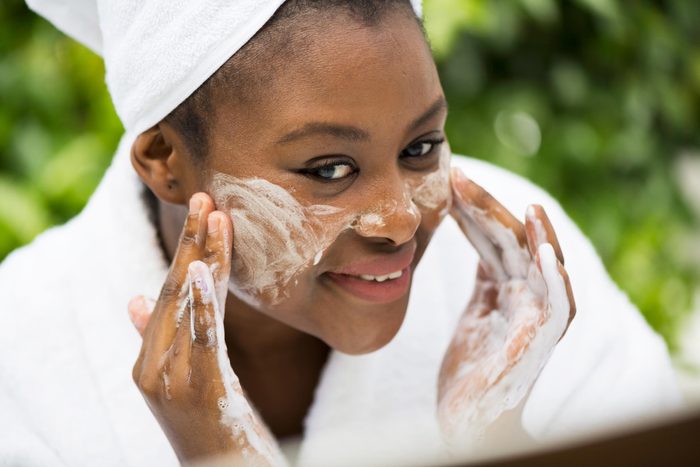
As balmy summer days approach, you may be excitedly swapping out your cardigans and scarves for breezy beachwear. But while you’re updating your wardrobe, don’t forget that your skincare regimen could also use an overhaul when the seasons change, too. “It’s important to switch up how we deliver actives to our skin with temperature fluctuations,” Instagram’s Pillowtalk Derm, Dr. Shereene Idriss, MD, recently told us in an interview.
Here, Dr. Idriss and a few fellow dermatologists from around the country reveal the 10 best skincare changes you can make before summer arrives to ensure you’re glowing from the inside out when the sun starts to sizzle.
5 Diet Changes You Should Make Before Summer, from a Nutritionist

1. Swap heavy creams for lightweight lotions
While those dense, nourishing creams were your skin’s best friends during the frigid winter months, they can become overbearing as the temperature rises. The thicker formulas can sit heavily on your skin, making you feel sticky and greasy. Therefore, as the seasons transition, it’s time to trade your heavy moisturizers for lighter lotions. These products are more readily absorbed, leaving your skin feeling refreshed and not weighed down.
Dr. Amy Kassouf, a dermatologist with Cleveland Clinic, emphasizes this switch and notes that many individuals observe changes in their skin during the summer. These changes often necessitate a different type of moisturizer. “If you use something too rich in the summer, you may break out, or you may get those little milia,” she says. These milia can occur when keratin becomes trapped under the skin. Heavy, rich creams can exacerbate this problem, especially in the heat when your skin is already producing more oil.
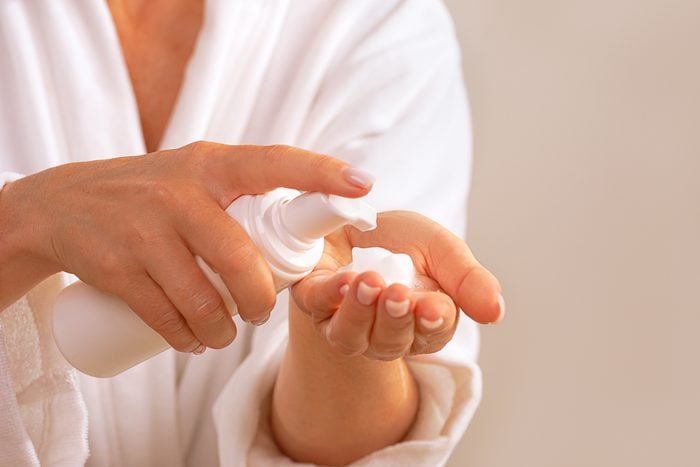
2. Switch to a foaming cleanser
Dr. Kassouf recommends shifting to a good foaming cleanser for the summer months. Foaming cleansers are lightweight and provide a deep clean, effectively removing sweat, oil, and dirt that can build up more quickly in the summer heat. It may be time for a swap if you’re currently using a heavy cream or oil-based cleanser.
One we adore? The turmeric cleanser from supermodel (and certified nutrition coach!) Miranda Kerr’s KORA Organics collection.
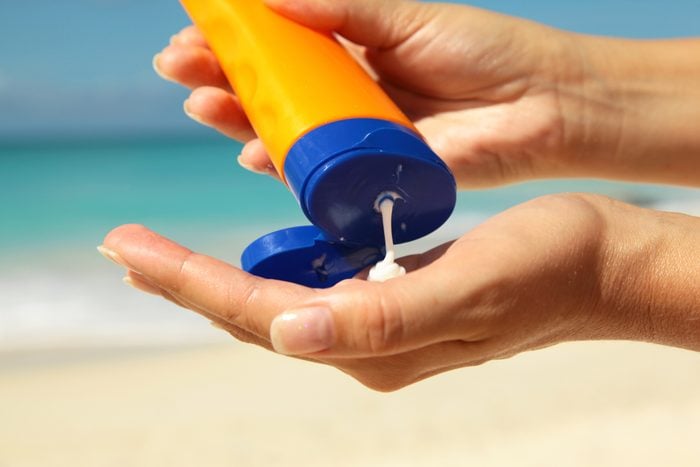
3. Elevate your sunscreen game
There’s no compromise when it comes to sunscreen. Opt for a broad-spectrum sunscreen of at least SPF 30, making sure to reapply every two hours and immediately after swimming or excessive sweating. Pay attention to often-overlooked areas such as the tops of your feet and the backs of your hands.
Also, remember to take special care of your lips. Apply an SPF-infused lip balm regularly to protect them from the sun’s unforgiving rays and to prevent dryness.
The 4 Surprising Body Parts That Are Most Vulnerable to Skin Cancer, Says Research
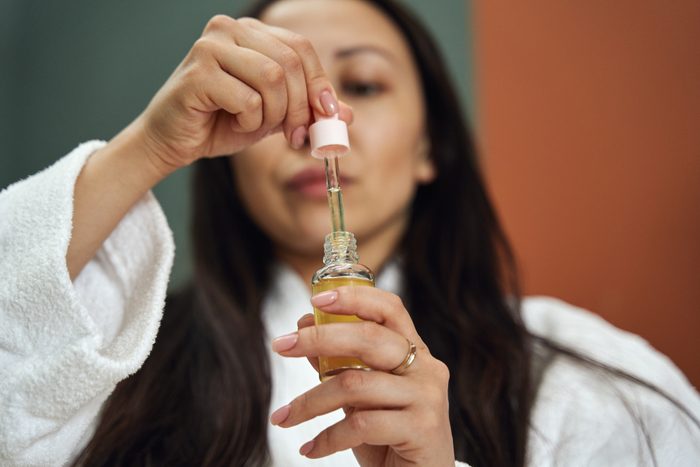
4. Amp up anti-aging skincare
Skin experts, including Dr. Kassouf, recommend antioxidants and retinol for effective anti-aging care. Antioxidants such as vitamin C are an essential line of defense against summer heat, powerful sun rays, and environmental pollutants, all of which can contribute to oxidative stress on your skin. They neutralize harmful free radicals, stimulate collagen production, and brighten skin.
Contrary to common belief, retinol can be beneficial during the summer. “It will work better if you use it at night,” advises Dr. Kassouf, addressing concerns about sunlight inactivating retinol.
Dr. Kassouf also dispels worries about skin tolerance, explaining that the increased oil production in your skin during the warmer months can counterbalance the sometimes-drying effects of retinol. With the heightened sun exposure in summer, it’s important to use sunscreen to protect the newly resurfaced skin cells. This allows you to reap the benefits of retinol without jeopardizing your skin’s defense against the sun.
Dermatologists Say This 1970s Anti-Aging Ingredient Is Still the Gold Standard for Gorgeous Skin
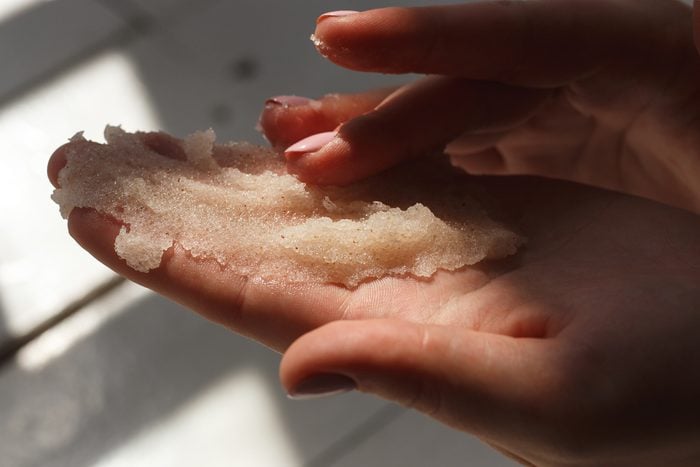
5. Balance your exfoliation
A buildup of sweat, oil, and grime is common in summer, making regular exfoliation essential. Aim for a gentle exfoliant once or twice weekly to avoid skin irritation and reveal a smoother, brighter complexion.

6. Lighten your makeup
The high humidity of summer can turn a heavy foundation into a pore-clogging enemy. Now is the ideal moment to pivot to lighter, oil-free cosmetic alternatives. Ranging from liquid to powder formulas, these lightweight products provide the desired coverage, allowing your skin to breathe and effectively managing excess oil. Be sure to choose non-comedogenic products that won’t obstruct your pores.

7. Hydrate, hydrate, hydrate
With heat and sun exposure, your skin risks dehydration, leaving it looking dull and tired. While drinking plenty of water is a must, consider skincare products packed with hyaluronic acid, a hydration superhero.
Here’s How Much Water You Really Need in a Day, with Nutritional Scientists’ Latest Wisdom

8. Use physical barriers
Sunscreen is paramount for skin defense but doesn’t do the job alone. Physical barriers offer an excellent secondary defense. A wide-brimmed hat can provide ample shade for your face, neck, and shoulders, shielding these frequently exposed areas. Sunglasses with UV protection safeguard your eyes and the delicate skin around them.
Also, dermatologists recommend wearing lightweight, long-sleeved clothing for additional outdoor protection. Opt for fabrics with a tight weave rather than loose or open-weave materials, like lace. Dark colors tend to offer more protection than lighter ones. Look for clothing labeled with an ultraviolet protection factor (UPF) for when you’re at the beach or pool.

9. Limit sun exposure
While the sun’s warmth is enticing, overexposure to its rays can be harmful. Aim to limit direct sun exposure, particularly during peak UV hours, typically between 10 a.m. and 4 p.m. Seek shade under trees, and use sun hats or umbrellas during these hours. Even cloudy days can be deceiving, as the sun’s rays can penetrate the clouds and cause sunburn.
Spending This Much Time Outside Each Day Could Make You Live Longer

10. Soothe your skin
Despite your best efforts, you might still end up with sunburned or irritated skin. Aloe vera is a powerful natural remedy that provides soothing relief. It’s also beneficial for regular skin maintenance because of its anti-inflammatory and moisturizing properties.
